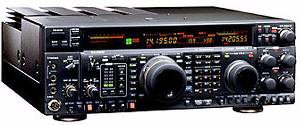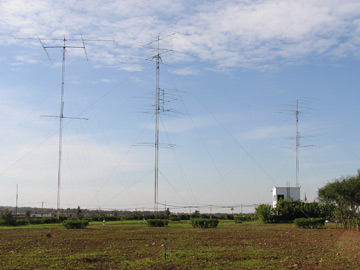Welcome to Amateur Radio!
Here's your invitation to a friendly, high-tech hobby that's got something fun for everyone! You can become an Amateur Radio operator--no matter what age, gender or physical ability. People from all walks of life pass their entry-level exam and earn their Amateur (ham) Radio license. They all share the diverse world of activities you can explore with ham radio. You never know who you'll run into when communicating with Amateur Radio: Young people, retirees, teachers and students, engineers and scientists, doctors, mechanics and technicians, homemakers...
Getting started in ham radio has never been easier! We invite you to explore the following information and learn about Amateur Radio. We know you'll enjoy this fascinating world of Amateur Radio, and we hope to have the chance of meeting you on the air--when you become an Amateur Radio operator!

A FUN Hobby...
What Can Amateur Radio Operators Do?
Ham radio operators use two-way radio stations from their homes, cars, boats and outdoors to make hundreds of friends around town and around the world. They communicate with each other using voice, computers, and Morse code. Some hams bounce their signals off the upper regions of the atmosphere, so they can talk with hams on the other side of the world. Other hams use satellites. Many use hand-held radios that fit in their pockets.
Fun for All Ages
Hams exchange pictures of each other using television. Some also like to work on electronic circuits, building their own radios and antennas. A few pioneers in Amateur Radio have even contributed to advances in technology that we all enjoy today. There are even ham-astronauts who take radios with them on the International Space Station and thrill thousands of hams on earth with a call from space!
With a SERIOUS Side...
Using even the simplest of radio setups and antennas, amateurs communicate with each other for fun, during emergencies, and even in contests. They handle messages for police and other public service organizations during all kinds of emergencies including: - Hurricanes
- Earthquakes
- Tornadoes and floods
- Motorist accidents
- Fires and chemical spills
- Search and rescues
It's Easy to Get Started
Getting started in Amateur Radio has never been easier. First, locate a radio club in your area. Some radio clubs offer ham radio licensing classes, or they can find a club volunteer to answer your questions. You may even be invited to attend a local radio club meeting. The Amateur Radio license examinations are administered by ham radio volunteers. When you're ready to take your exam, you'll need to locate an exam session near you.

|